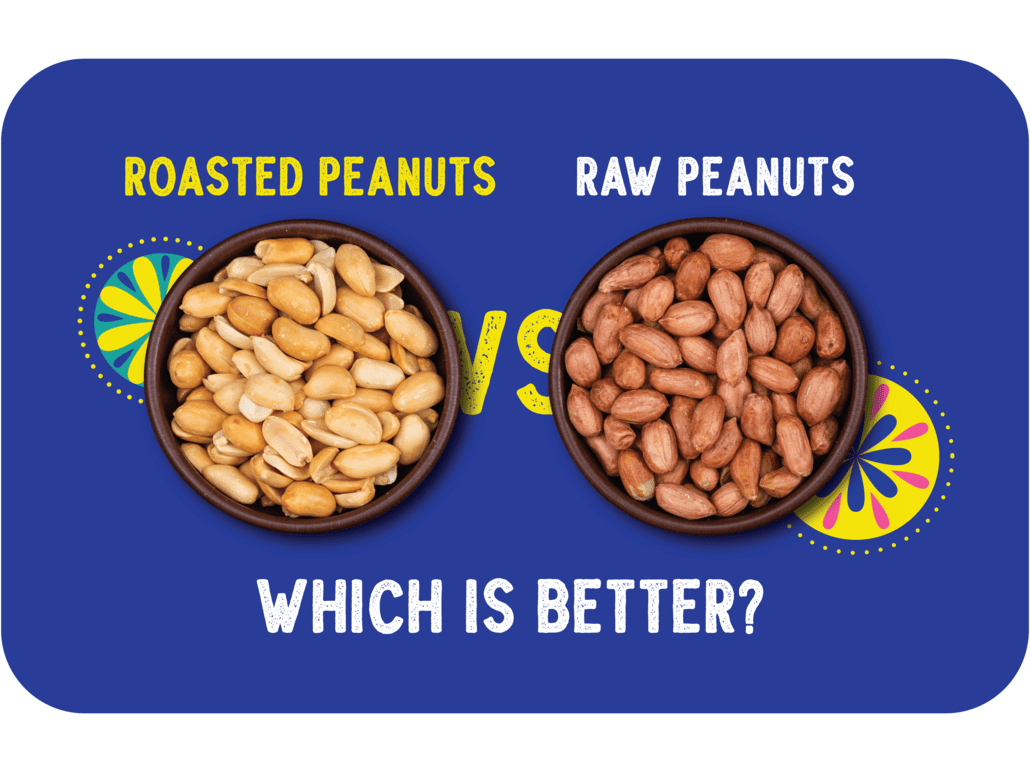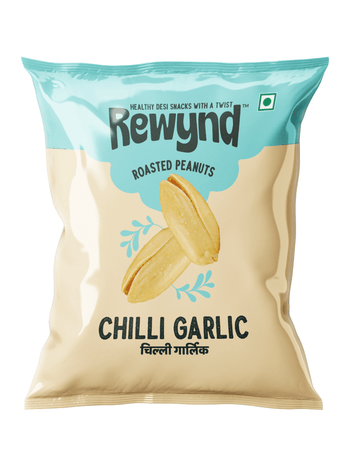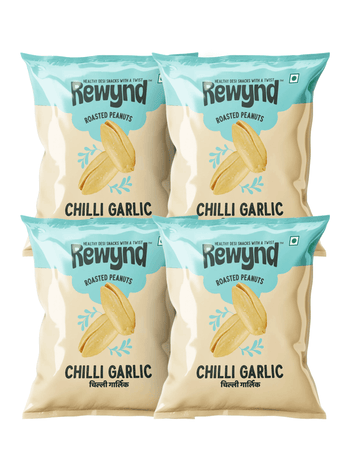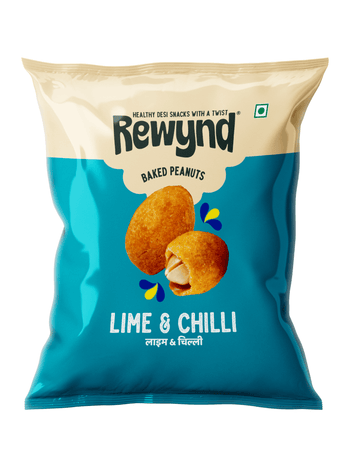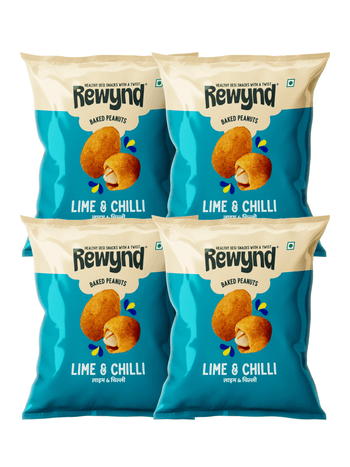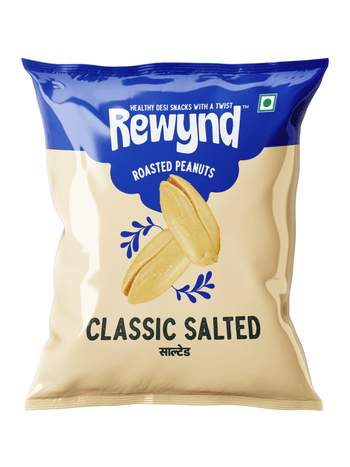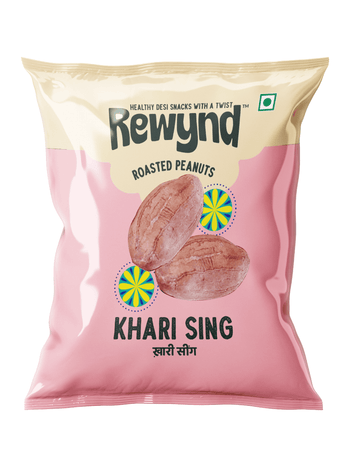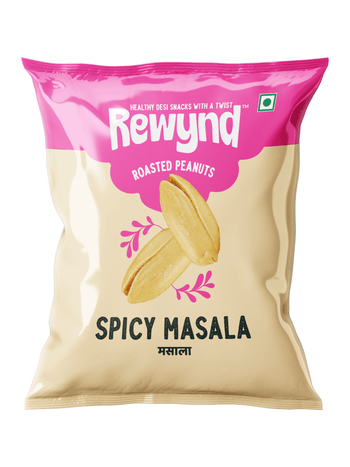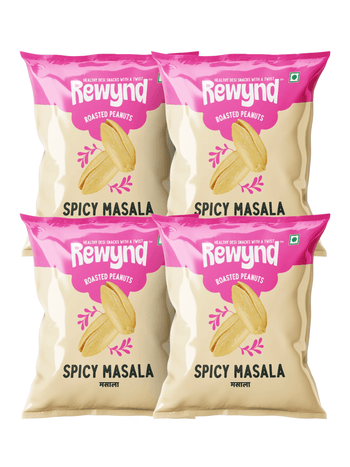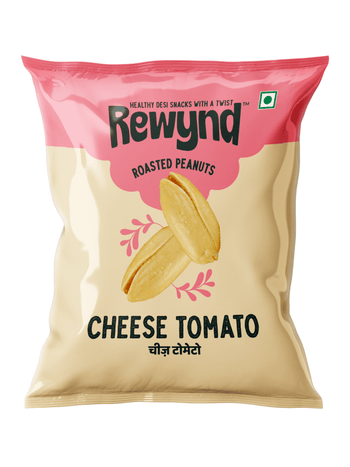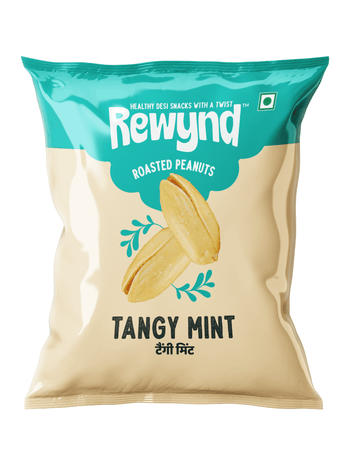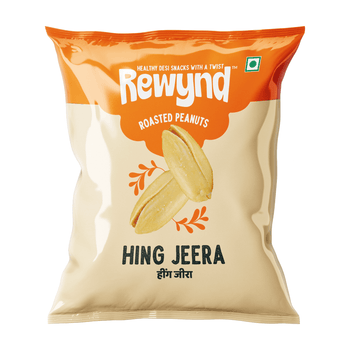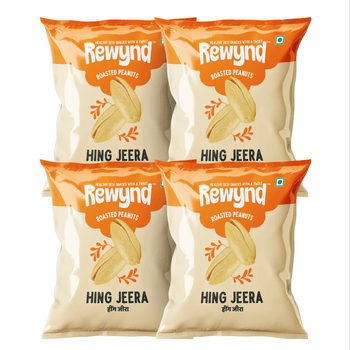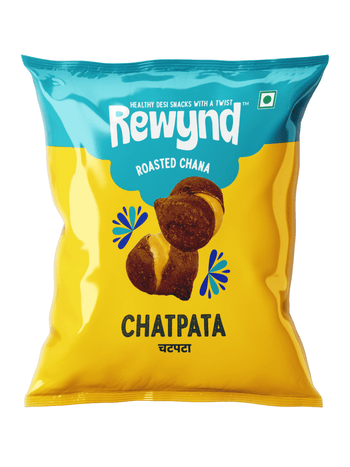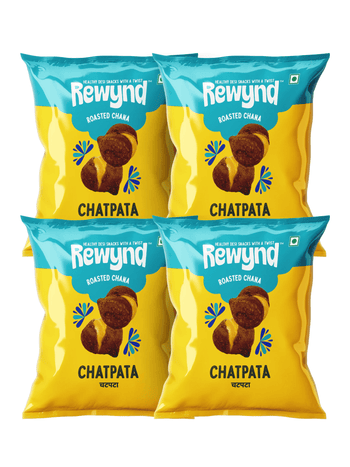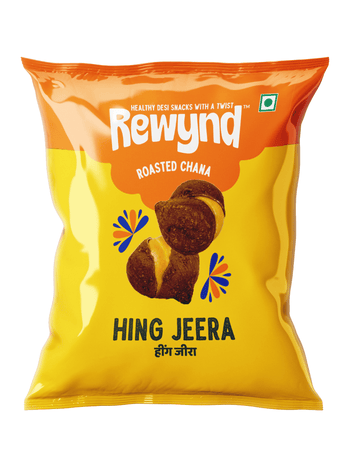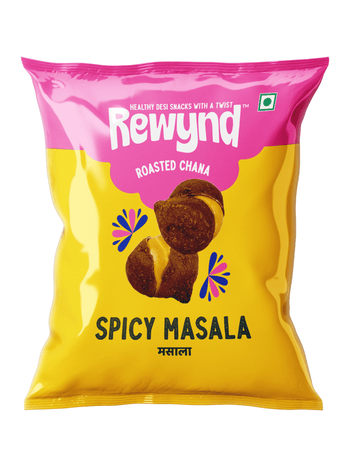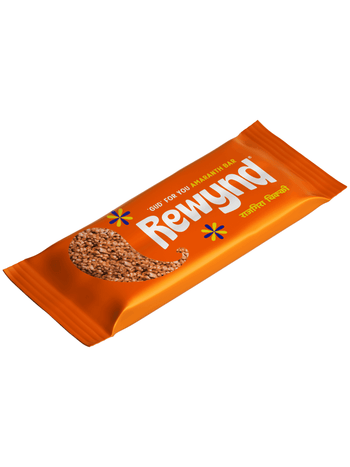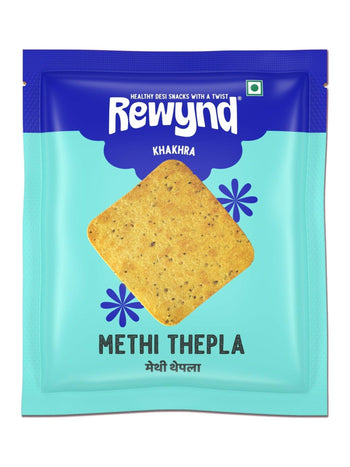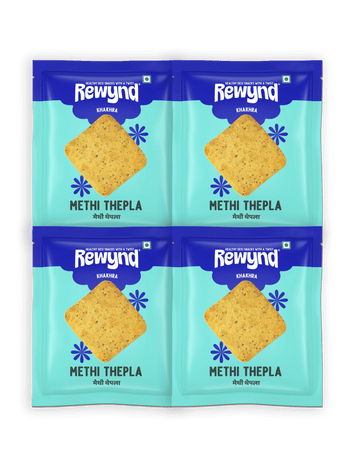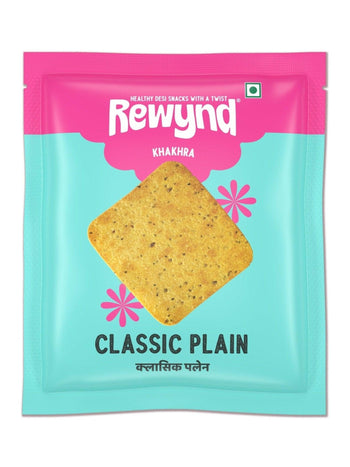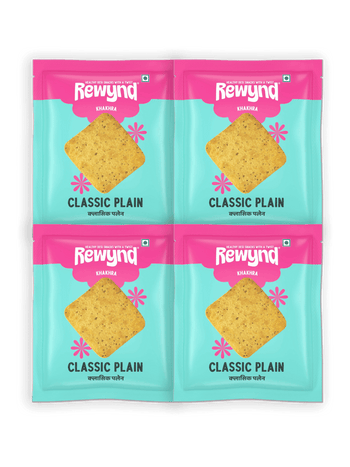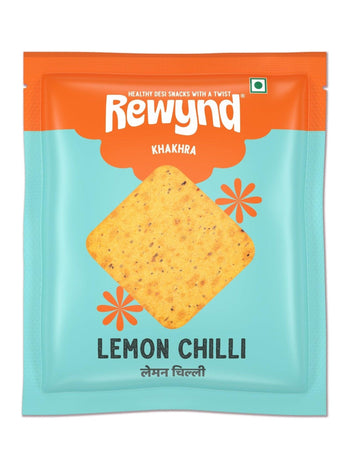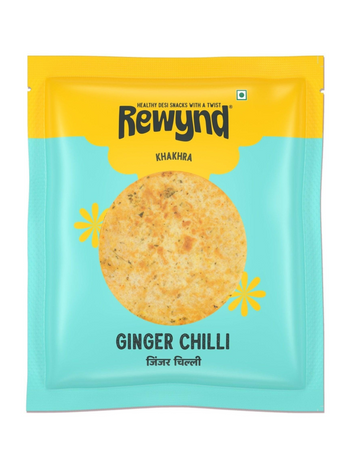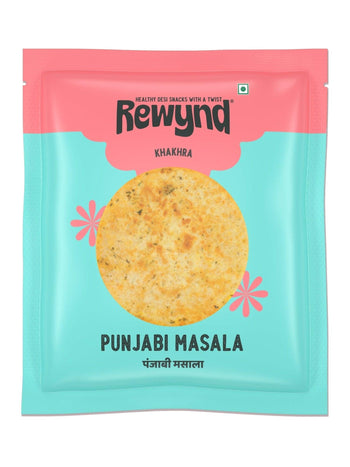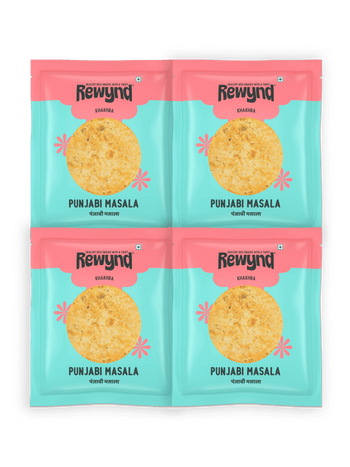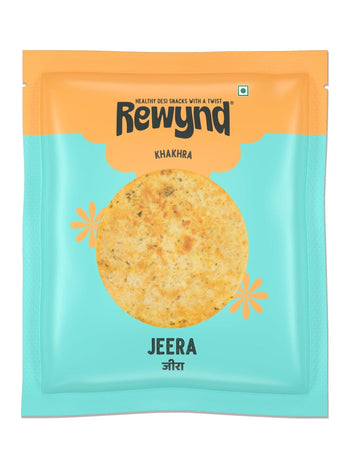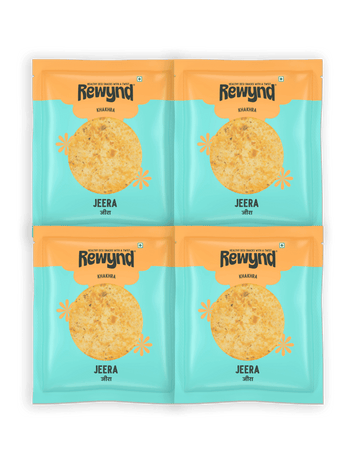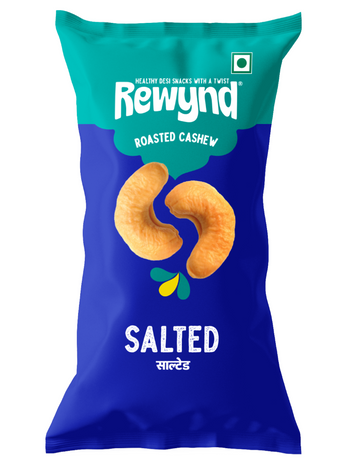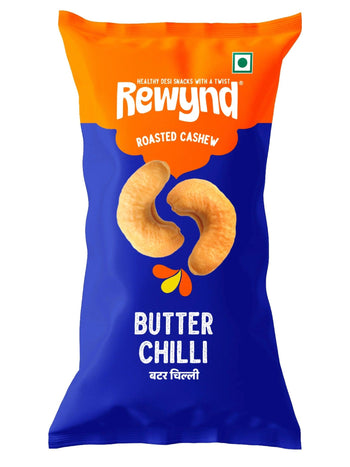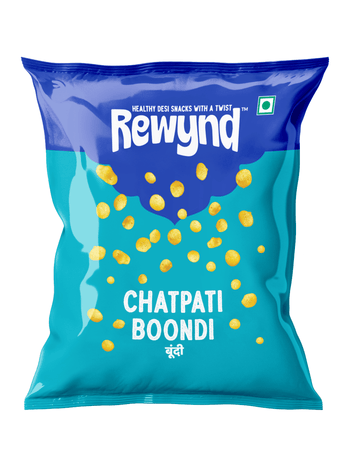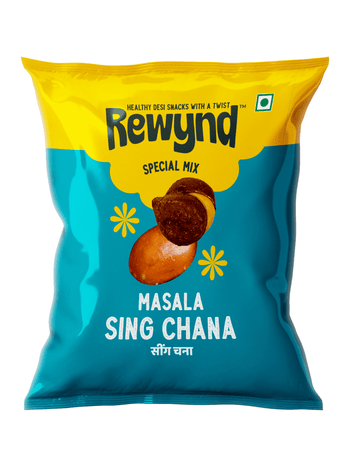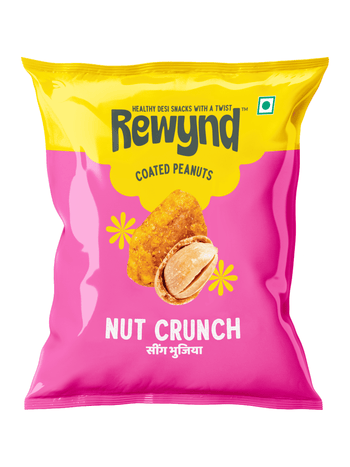The all mighty nutrient rich peanut – a snack beloved by many and a prominent item in many households across the globe. Whether you're munching on them at a cricket game or incorporating them into a delicious sauce for a healthy dish, peanuts have secured their place in our hearts and diets.
But when it comes to choosing between roasted and regular peanuts, which should you go for? If you always find yourself in this dilemma, keep reading, this blog is just for you!
However, before starting the debate of roasted peanuts vs regular peanuts, let’s understand the significance of peanuts and why you should have them in first place (if you are not having peanuts in your daily diet already)
Health benefits of roasted & regular peanuts
Peanuts aren’t just a tasty treat; they pack a punch in terms of nutritional content. With their rich protein, dietary fiber, and good fat content, peanuts are an excellent ally in combating the cravings for those unhealthy snacks we often reach for.
Why choose roasted & regular Peanuts over junk food?
Peanuts are loaded with essential nutrients and antioxidants. They're a rich source of monounsaturated and polyunsaturated fats, which are heart-healthy and can help reduce bad cholesterol levels.
Their protein content can keep you full for longer, making them an ideal snack for those trying to manage their weight. Additionally, peanuts contain various vitamins and minerals like magnesium, potassium, and Vitamin E, which play a vital role in maintaining overall health.
So, now that we have an understanding of whether peanuts in any form are healthy and preferable to have in your diet in exchange for other junk food, let’s jump into the real debate of the blog i.e. roasted vs regular peanuts.
The Nutritional Facts of Peanuts: Roasted vs. Regular
Facts first! Let’s get a grasp of the nutritional factual information before throwing any opinions on this historic debate of roasted vs. regular peanuts.

Here’s a brief nutritional rundown of 100 grams of raw peanuts and roasted peanuts:
|
Nutrient |
Roasted Peanuts (per 100g) |
Regular (Raw) Peanuts (per 100g) |
|
Calories |
Approximately 587 calories |
Approximately 567 calories |
|
Total Fat |
About 49 grams |
About 49 grams |
|
- Saturated Fat |
About 7 grams |
About 7 grams |
|
- Trans Fat |
0 grams |
0 grams |
|
Cholesterol |
0 milligrams |
0 milligrams |
|
Sodium |
About 10 milligrams |
About 2 milligrams |
|
Total Carbohydrates |
Approximately 21 grams |
Approximately 16 grams |
|
- Dietary Fiber |
About 7 grams |
About 6 grams |
|
- Sugars |
About 3 grams |
About 3 grams |
|
Protein |
About 26 grams |
About 26 grams |
|
Vitamin D |
0 IU |
0 IU |
|
Calcium |
About 35 milligrams |
About 49 milligrams |
|
Iron |
About 1.9 milligrams |
About 2.2 milligrams |
|
Potassium |
About 705 milligrams |
About 705 milligrams |
This table provides a comparison of the nutritional content of roasted peanuts and regular (raw) peanuts per 100 grams serving, which is a more common reference point for nutritional analysis.
So, if there’s not a lot of difference in terms of nutritional contents in roasted vs. regular peanuts, why do we roast them in the first place? Let’s understand.
Why Do We Roast Peanuts?
Roasting peanuts enhances their flavor, giving them a richer, deeper taste compared to their raw counterparts. The process of roasting also improves their crunchy texture. Moreover, roasting can sometimes make nuts easier to digest for some individuals.
The Art of Roasting: Techniques Unveiled
What Happens to Peanuts When Roasted?
Roasting does bring about some changes in peanuts' nutritional profile. While the protein and carbohydrate content remains relatively unchanged, the fat composition can be altered, especially when oil-roasted.
Some minor losses in vitamins, like Vitamin E, can occur due to the heat. Also, some studies suggest that roasting can lead to a slight reduction in antioxidant content.
Tips for Perfect Roasted Peanuts
So does it mean one shall only have roasted peanuts? No, it is not the case. If you are good with the taste of regular peanuts, go for it. However, there are certain precautions you should take before eating regular peanuts.
Regular Peanuts Precautions
While raw or regular peanuts have their benefits, ensure they're free from aflatoxins – a group of harmful toxins produced by certain molds. Store them in a cool, dry place and consume them before their expiration date to avoid mold growth.
The Best Peanut for You?
Both roasted and regular peanuts have their unique attributes and benefits. If you're a fan of a deep, rich flavor and a crunchy texture, roasted peanuts are your go-to. If you prefer a more natural taste and slightly softer texture, regular peanuts might be up your alley.
In essence, the best peanut for you comes down to your taste and preference. Enjoy them as a wholesome snack, in your favorite dishes, or even as a delightful peanut butter spread. After all, in the grand arena of health and flavor, the peanut is a definite winner!
